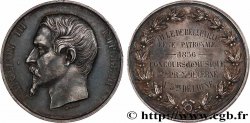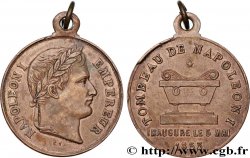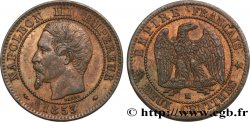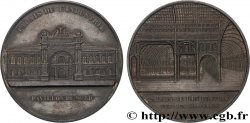fme_385526 - SECOND EMPIRE Médaille du Grand maître du rite écossais
无库存.
所有在网站上销售的产品 (2016)
价格 : 200.00 €
所有在网站上销售的产品 (2016)
价格 : 200.00 €
种类 Médaille du Grand maître du rite écossais
日期: 1862
铸币厂名称/城市 France
材质 copper
直径 51,5 mm
模子方针 12 h.
硬币制模工 DUBOIS Alphée (1831-1905)
重量 65 g.
侧面 lisse + abeille CUIVRE
关于品相的说明
Très belle médaille avec d’infimes traces de manipulation et une belle patine brune
正面
正面的文字 * AU T. IL. F. VIENNET T. P. S. GR. COMM. G. M. DU RIT ECOS. ANC. ACC. EN FRANCE. // LA MAC:. ECOSS:. RECONNAISSANTE. .
正面的说明书 Buste de Jean Pons Guillaume Viennet à gauche, en sautoir maçonnique portant un triangle rayonnant percé de deux épées et inscrit de 33.
背面
背面的文字 LA. T. IL. GR. :. CENT. DU RIT ECOS. ANC. ACC. EN FRANCE SEANCE DU 20E JOUR DU 3E MOIS DE L’AN DE LA GR . LUM.5,862 // (18 JUIN 1862E.V.).
背面的说明书 Sur une palme et un rameau d'acacia liés entre eux, obélisque dont la base porte un niveau et un compas entrecroisés, surmonté d'une étoile rayonnante portant un G ; sous l'obélisque STAT ALTVS..
评论
Viennet est né à Béziers en 1777. Officier d'artillerie de marine, il prit sa retraite comme lieutenant-colonel, l'indépendance de ses idées l'avait fait rayer des cadres de l'armée en 1829. Il joua un rôle politique comme député de Béziers en 1830 puis comme pair de France sous Louis-Philippe. Grand maître des francs-maçons du rite écossais en France, il publia des poésies, des fables et des romans, fit représenter des tragédies et collabora à plusieurs journaux. Il est élu à l'Académie française le 18 novembre 1830, en remplacement de Louis-Philippe de Ségur. Il meurt en 1868 [article complémentaire dans les Cahiers Numismatiques n° 113].








 对产品描述纠错
对产品描述纠错 打印
打印 分享我的选择
分享我的选择 提问
提问 Consign / sell
Consign / sell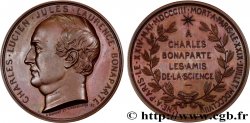
 产品介绍
产品介绍